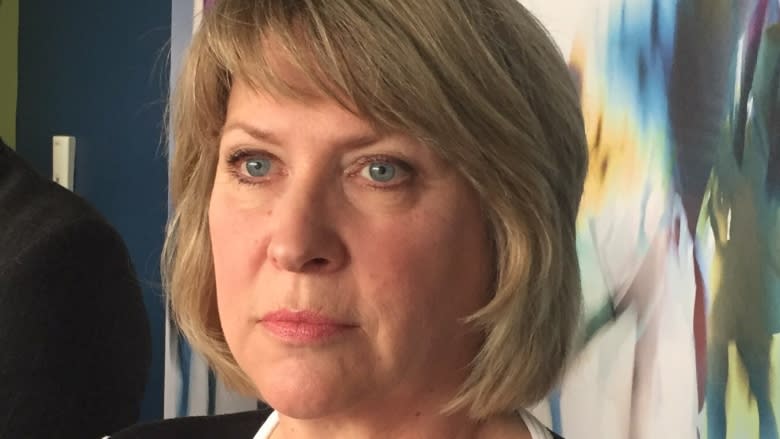Province offers $101 monthly allowance to Nova Scotians living in shelters
People forced to live in shelters in Nova Scotia may soon be eligible to receive a little money from the provincial government for personal items such as razors or tampons.
The $101 monthly allowance is a "significant payment" for people in need, Community Services Minister Kelly Regan said Thursday.
"It will allow them to buy things like bottled water and personal hygiene [items]," Regan said. "It will help them live a better life."
The province estimates about 300 people will be eligible for the Personal Items Allowance. It has set aside $500,000 for the cost.
Asked if $3.37 a day was enough money, Regan responded, "That's a question you can always ask. The fact of the matter is we're making improvements."
"We'll continue to make improvements," she said. "We have more work to do. We're not done yet. But these are good steps along the way."
The executive director of Feed Nova Scotia agreed.
"Certainly all the numbers and the information I have seen suggests that it will have a significant impact on those who are living with food insecurity," Nick Jennery told reporters after the announcement.
"Really what it adds up to is, that is the person who is living with food insecurity, do they have more money dollars in their pocket to pay for rent and feed their family than what they did yesterday?"
The YWCA's executive director Miia Suokonautio also praised the new program, noting women who live in transition houses because of abusive relationships will also qualify for the allowance.
"That the province has included transition houses and not just shelters in the Personal Items Allowance is pretty significant," she said.
Asked if the allowance is generous enough, Suokonautio replied, "If you have zero dollars, $101 is the world."
The payments will start in October. The allowance is available to anyone who qualifies for income assistance.
Regan also told reporters her department will end the practice of clawing back child support payments starting Aug. 1.
It announced the move in March.
Ending the clawback of support payments is expected to cost the province $5.1M.



